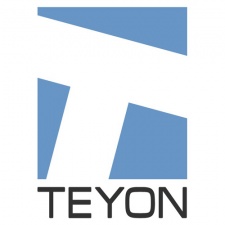For Western developers, Japan is one of the markets is worth dedicating time to cracking.
Thanks in part to its legacy feature phone market, it's the largest mobile games market by revenue, so a successful mobile game has the chance of bringing in serious revenues if released properly into the land of the rising sun.
Yet there has been a long held perception that Japan is problematic for developers to break into. The combination of the tough language barrier, strong cultural differences and a supposed antipathy to Western games has discouraged many companies from taking the leap.
Trying to convince us otherwise at the Digital Dragons conference in Krakow, Poland was Mateusz Makowiec, CMO of game developer Polish company Teyon, which has published 20 titles in Japan.
A unique opportunity
Examining the number of handsets, tablets and other devices in the Japanese market, Makowiec said the country is home to 37 million Android handsets, 24 million iPhones, 8.5 millions iPads and 6.5 million Android tablets meaning that there is a serious market for mobile games.
However, these statistics mask a number of unique traits about the Japanese market.
As a result of the makeup of the Japanese mobile industry, game distribution and the technology it has a number of different angles and shades to it that developers used to Western stores might nor appreciate.
On the app distribution front, monthly app download subscription services offered through carriers like Au Smartpass vie with both the major app stores and the likes of gaming networks like DeNA and GREE.
In terms of handsets, devices from Toshiba and Fujitsu that have no traction in the West enter the Android mix. And that’s not to mention the broader differences in consumer types between nations that needs to be bridged.
Lost in translation?
And perhaps more remarkably for a talk that was focused on showing how to break into Japan easily, that didn’t seem to be the end of the problems when it comes to releasing in the Japanese market.
“You have to form a limited company, set up bank accounts…it’s more than a weekend job” said Makowiec in response to a question regarding the practicalities of getting your game properly released in the Japanese market on the likes of Nintendo’s E-Shop for the 3DS (which boasts over 15 million players) and on the carrier subscription services.
He didn’t even stop there. Citing the difficulties of translating an app successfully, where a small line in the wrong place leads to ‘happy’ becoming ‘spicy’, the problems of masterminding a social presence on the relevant Japanese networks and of creating launch momentum within the right Japanese press circles, he essentially proceeded to list a series of difficult challenges for a developer to overcome.
The result of that is that he somewhat undermined his talk. By ably demonstrating his understanding of his market and the problems faced, Makowiec essentially ended up presenting evidence that said it is difficult to launch in Japan from a practical perspective without the right support, as evidenced by a throwaway remark about how you should really be considering a publisher to help you.
Culture vulture
Which was a shame really because he eloquently explained that, from a cultural perspective, there is an element to the Japanese market that is open to developers willing to try to succeed.
On the one hand, Makowiec showed there is a greater acceptance of Western cultural norms.
Pointing initially away from games to the fact that 39 percent of Japan’s box office takings in 2013 were from Disney films, he eloquently demonstrated how the breakthrough of a game like Gameloft’s FPS Modern Combat 4 as a top paid title was showing that Japanese tastes were not solely the sum of “anime, manga and Sailor Moons” and that Western influences are breaking through.
And on the other, he showed that developers willing to take the step to localise properly for the market would be rewarded. Pointing out that only 16 out of the top 100 games grossing over $40,000 in the Google Play store in Japan had a localised game and that only four had a localised title, he unearthed a key fact about Japanese schooling to explain why simple localisation gives developers the chance to succeed.
“Contrary to popular opinion Japanese people do not know English” he said.
“They are taught it at school but they don’t like speaking it and they don’t like to download English content – they want to play in their own language.”
It might sound like commonsense but it’s rare to go to a game development talk where broader socio-economic factors are drawn into the equation.
And on that front, this talk showed that a bit more understanding of where the Japanese market is willing to adopt Western culture and not can reap results when it comes to release date – whether that’s through careful translations or updates to suit the Japanese holiday calendar.

















